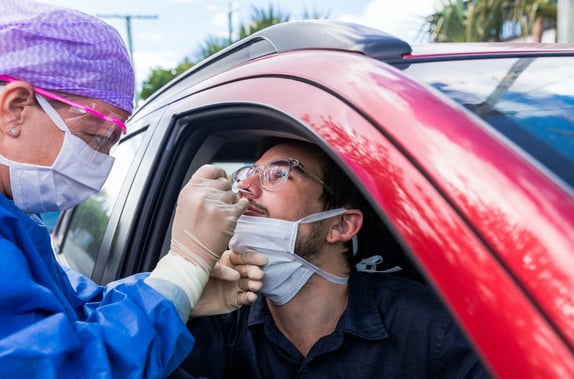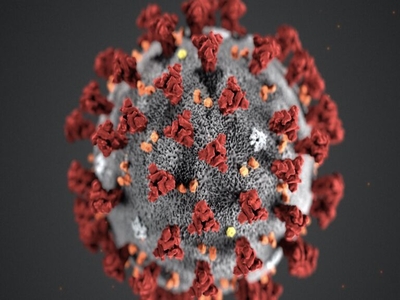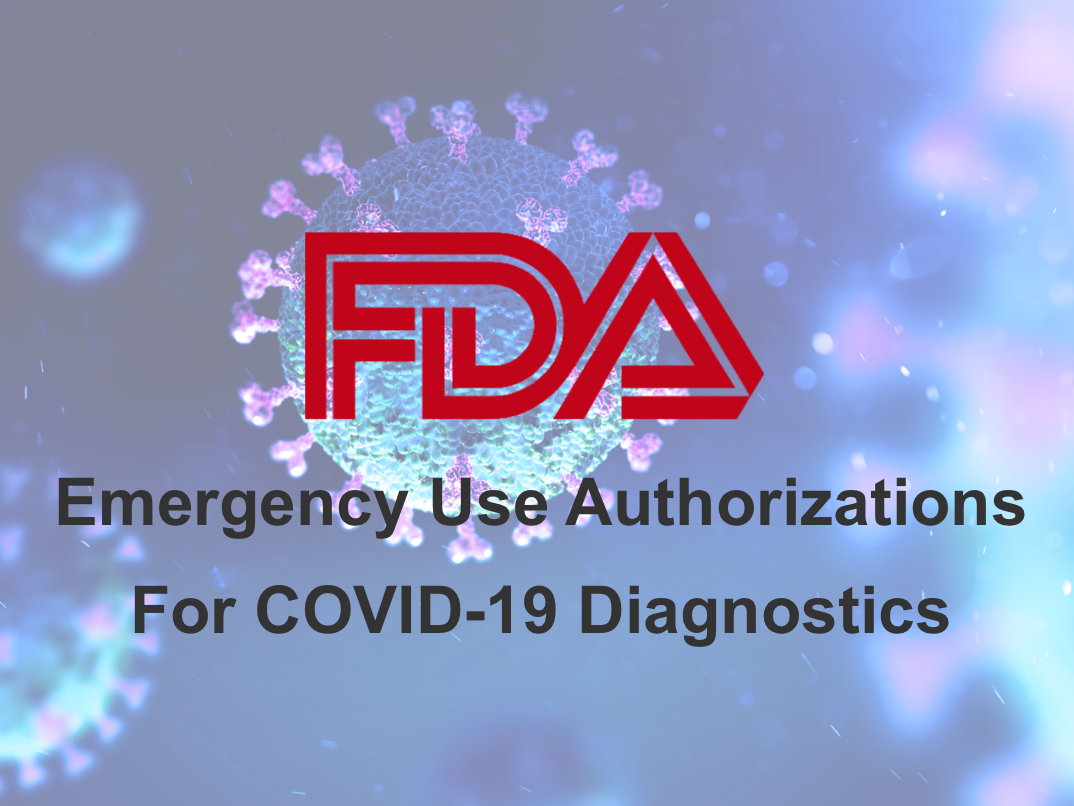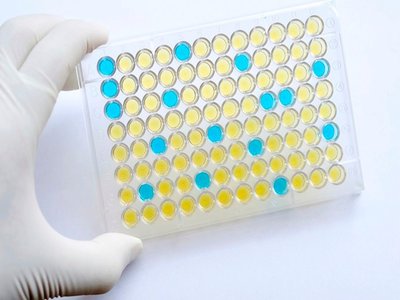There is no doubt that the coronavirus is the hottest topic as of late, having dominated media headlines and having fundamentally changed the way that we live and work. As the outbreak of the coronavirus continues to worsen across the globe, the demand for COVID-19 detection is therefore ever-increasing.
Currently, the most common detection technique used is nucleic acid detection, based on nucleic acid extraction and RT-qPCR workflow. Nevertheless, the COVID-19 IgM/IgG Antibody Test is becoming a technique that may soon serve to replace nucleic acid detection with its simplified and more efficient procedure. Two of the most frequently asked questions are: whether they are replaceable, and what the differences between the two techniques are. Today, we would like to discuss the two detection techniques and provide you with a better understanding of both in order to maximize your research and clinical success.
 Many states have begun to implement drive-thru swab testing for COVID-19. Image courtesy of Shutterstock
Many states have begun to implement drive-thru swab testing for COVID-19. Image courtesy of Shutterstock
Principles & Procedures: Nucleic Acid Detection
For nucleic acid detection, you must first extract the nucleic acid from the patients’ specimens. These can include serum, plasma, and nasopharyngeal swabs. Most of the automated nucleic acid extraction systems available, such as the one offered here by ABclonal, utilize magnetic bead-based technology. After extraction, the nucleic acid is then loaded into the COVID-19 nucleic acid detection kit to run a RT-qPCR assay. ABClonal provides a One-Step RT-qPCR Probe Kit here that bundles the reagents you need to achieve high quality results with maximum efficiency for your detection and expression experiments. For a primer and more detailed information about our One-Step RT-qPCR Kit, check out this helpful informational blog. The assay uses the reverse transcriptase contained in the kit to generate cDNA. The COVID-19 nucleic acid detection targets sequences specific to SARS-CoV-2 through amplification of specific DNA targets using polymerase chain reaction (PCR). A results analysis can then be used to quantify expression of SARS-CoV-2. ABclonal has you covered at every step of the procedure—you can read more about our Viral RNA Extraction & Purification Kit for initial viral genome purification.
Principles & Procedures: Serology/Antibody Tests
For the COVID-19 IgM/IgG antibody test, the procedure is simplified. First, one or two drops of blood from the patients must be collected. The blood is dripped into the sample addition area and then left for 15 minutes to allow for results to manifest. Within this testing method, any antibody in the patient’s blood that recognizes the SARS-CoV-2 antigen binds with the SARS-CoV-2 antigen-coated gold nanoparticles (AuNP) in the conjugation pad of the test cassette. The complex then migrates laterally across the membrane by lateral flow. When they cross the test lines, they are then captured at their respective positions. Humans produce IgM antibodies during the early stages of infection. If only IgM antibodies are present in the specimen, it indicates that the patient was recently infected. IgG antibodies are generated later in the course of infection, and thus the presence of IgG antibodies indicate that the individual is in the convalescent stage or was previously infected. The CDC recently published information regarding COVID-19 serology testing and its applications.
Advantages & Disadvantages
|
Qualities |
COVID-19 Nucleic Acid Detection |
COVID-19 IgM/IgG Antibody Test |
|
Hands-on Work |
Difficult (++++) |
Easier (+) |
|
Cost |
More Expensive (++++) |
Less Expensive (+) |
|
Time Consumption |
Long (++++) |
Short (+) |
|
Specificity and Sensitivity |
High (++++) |
Lower (+++) |
|
Quantification |
Yes |
No |
With this information and summary table, you can weigh the pros and cons between the two detection techniques and decide what best suits your research and clinical needs. Regardless of the method you decide to use, ABclonal can provide everything you need for both methods and more to let you make the decision that best suits your specific research needs.
If you run into any trouble or have questions regarding any of our products, feel free to reach out to our support team by email or give us a call at the number below:
For further reading, be sure to check out our curated list of blogs and resources here that we've been able to compile over the course of a year under COVID-19. Covered in the blogs are a one-year-mark review of the impact of COVID-19 on the US, a breakdown of asymptomatic cases, an organized look at vaccine research, and more.





